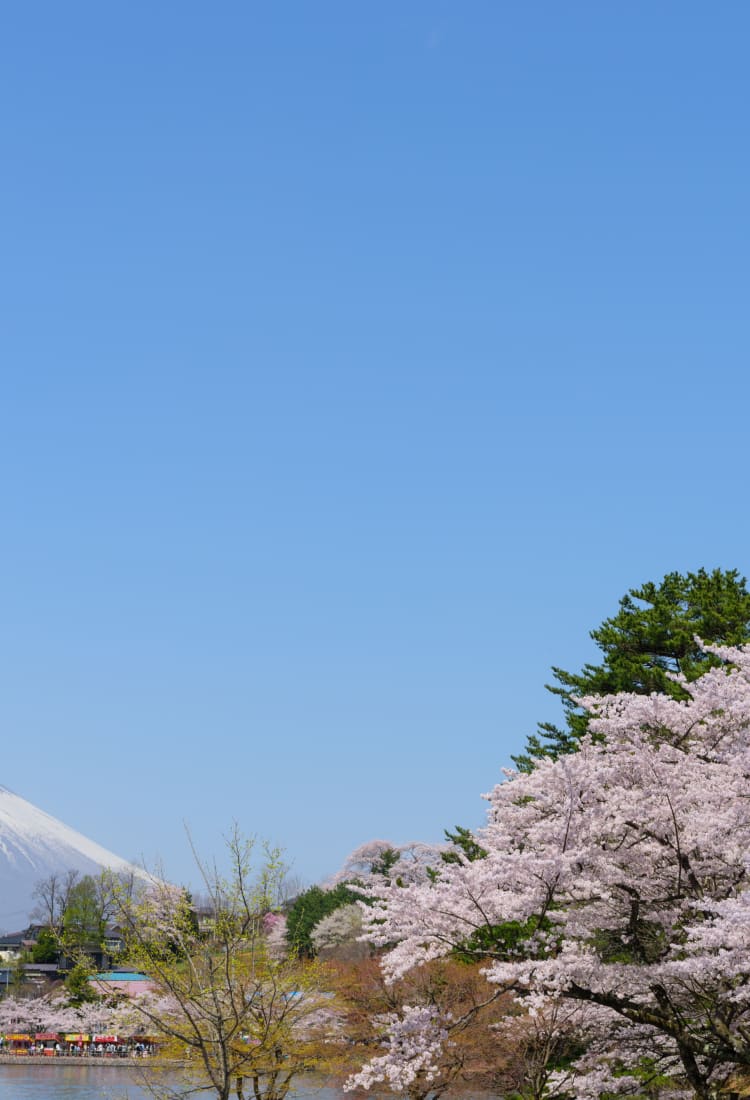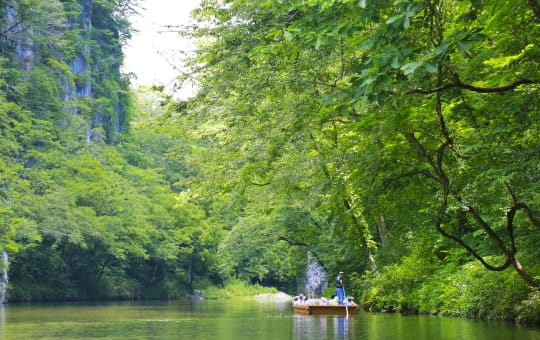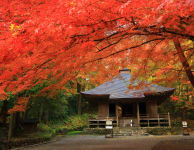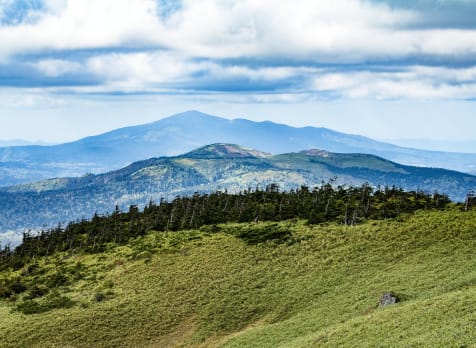A city of strength, from ironware to workhorses
Morioka lies in the shadow of Mt. Iwate, on the Kitakami and Nakatsu rivers. A historic center of wealth and power in the area, the city has a rich cultural heritage of craft and music.
Don't Miss
- The cherry blossoms in Iwate Park from late April to early May
- The Sansa Festival, the largest taiko drum festival in the world
- The modern art and brutalist architecture at Iwate Museum of Art
How to Get There
You can reach Morioka Station from Tokyo by shinkansen.
Take the Tohoku Shinkansen or Akita Shinkansen from Tokyo Station . The journey takes just over two hours.
Quick Facts
In 1906, the grounds of the former Morioka Castle were turned in to a public park.
The Chagu Chagu Festival was started to give horses a break from the rigors of work and to pray for their health

The power center
The center of Morioka is Iwate Park . Built on the former site of Morioka Castle , the park has been open to the public since 1906. It's a popular spot for cherry blossoms in spring and autumn colors in the fall. From the highest points in the park, there are excellent views of the city of Morioka.

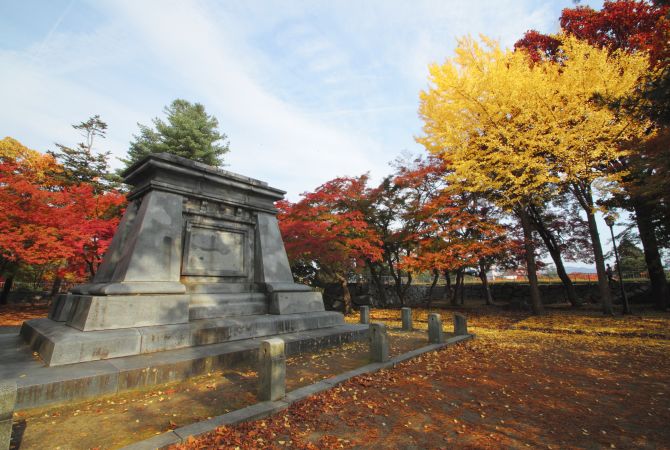
Rock all night, party all day
The park acts as a venue for several events and festivals. Music fans should check out the Ishigaki Music Festival held every September. Ten stages are scattered throughout the city, with the main stage in Iwate Park . Even if you are not a music fan, you can eat, drink and party with the other festival-goers.
A colorful horse festival
At the Chagu Chagu Festival , you can see horses dressed up in elaborate costumes with hundreds of bells attached, as they parade 15 kilometers from Takizawa to Morioka. During the two breaks the horses get during the parade, you can get up close to the horses, feed them and take pictures with them.
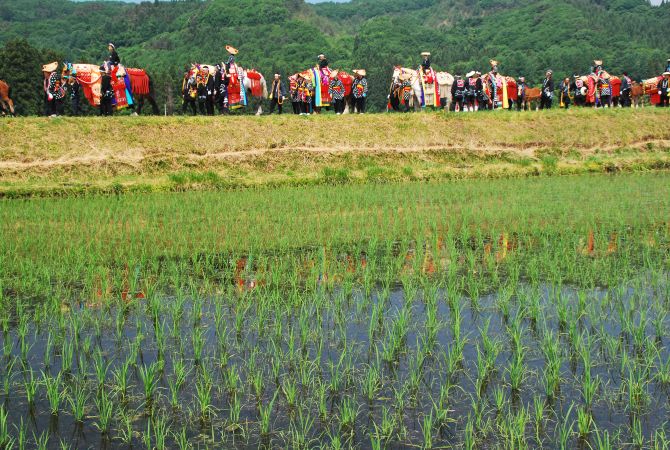

Dance the night away
The Morioka Sansa Festival held every August is the largest taiko drum festival in the world. The participants dance along to the sound of the drums, flutes, and chanters. At the end of the night, you can jump in and join the dancers. The Morioka Sansa Festival takes place during the peak of summer when temperatures are at their highest.
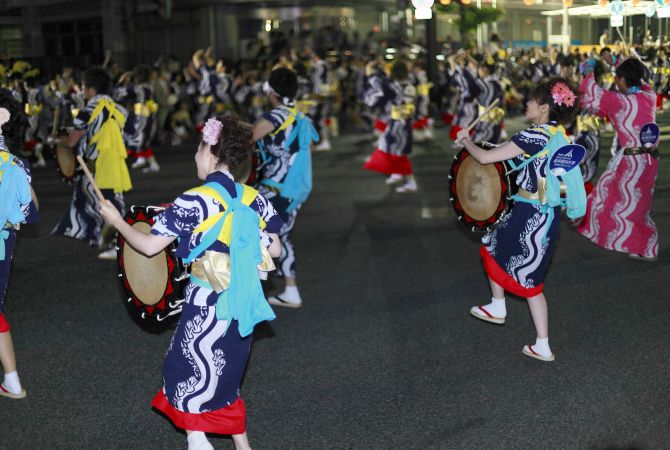
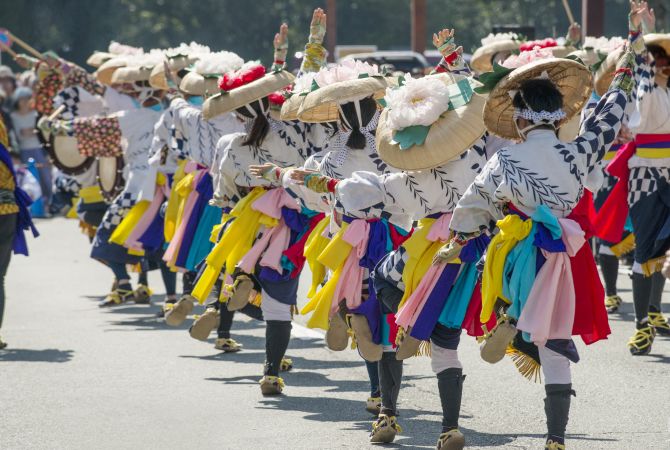
Praying for harvest, health, and peace
Another big event is the Aki Matsuri , or the Autumn Festival. Ornately decorated floats with taiko drummers and dancers are pulled through the city. On the last day you can see horseback archery. Accuracy is believed to guarantee a good harvest, as well as peace and safety.
Living like a snowman
The Iwate Snow Festival is held every February at several venues, including Koiwai Farm , near Morioka. You can admire the snow carvings, play in the snow, see fireworks and try some of Koiwai Farm's delicious dairy products. The farm is famous throughout Japan for its delicious ice cream.

Local treasures and heavy metal
If you are looking for the perfect gift for someone back home, visit the Morioka Handi-Works Square . You will find around 4,000 local products by local artisans. Morioka is known for its traditional ironware, or nambu-tekki, and the teapots are very popular. You can even try making your own crafts, from ceramics to ironware.
Powder paradise
For skiers and snowboarders, Morioka is the perfect starting point for a snowy adventure. There are several resorts in the area, including Appi , an hour north of the city. Appi is considered one of the best ski resorts in Japan. With 21 trails, this resort caters for all levels.


The runs at Appi just north of Morioka.
Bath time
After hitting the slopes or playing in the snow at the Iwate Snow Festival, a great way to warm up and soothe sore muscles is to relax in a hot spring. One of the closest is the Tsunagi Hot Spring area. The hot springs here have a variety of options for both day-trippers or overnight visitors.




















































